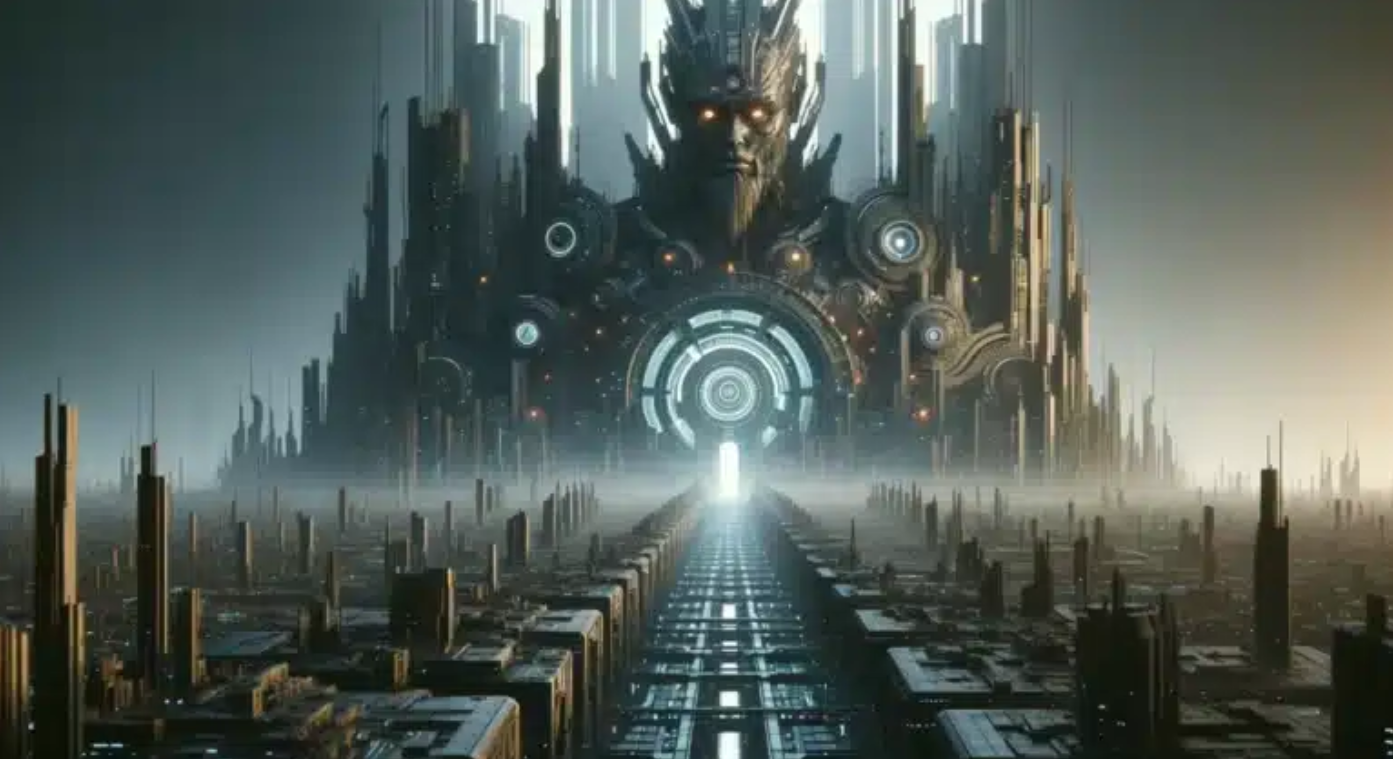Technology As Tyrant: A Glimpse Into A Dystopian Technocratic World
 This writer correctly makes the association between Technocracy and Transhumanism and how they hold the same mechanistic worldview about the utopian/dystopian future. This radical worldview clashes with over 95 percent of the people in the world and yet is every bit as tyrannical as anything seen in history. — Technocracy News & Trends Editor Patrick Wood
This writer correctly makes the association between Technocracy and Transhumanism and how they hold the same mechanistic worldview about the utopian/dystopian future. This radical worldview clashes with over 95 percent of the people in the world and yet is every bit as tyrannical as anything seen in history. — Technocracy News & Trends Editor Patrick Wood
By: Harold Fensky via HumanLevel AI
In the realms of both technocracy and transhumanism, there lies a shared belief, a kindred spirit, if you will. This belief holds that science and technology are not just tools or conveniences, but rather the very keystones of a utopian future, a perfect society.
It’s an alluring vision, an ambitious dream where the boundaries of humanity are not just pushed but entirely redrawn through the power of scientific management and technological integration. Let’s delve into this philosophy, beginning with its roots in technocracy.
The term itself, ‘technocracy’, was coined in 1919, but it was in 1938 that it crystallized into a more defined ideology. Technocrats argue that politicians and traditional forms of governance are ill-equipped to handle modern problems. Instead, they advocate for a society governed by technical experts — scientists, engineers, and technologists, those who understand the intricate workings of complex systems, be they in energy, transportation, or economics.
This governance model is underpinned by a profound trust in scientific methodology. Technocrats believe that through careful, rational, and scientific management of resources, a more efficient, equitable, and prosperous society can be achieved. The appeal is clear: decisions made not on the whims of politics, but on the solid ground of data, logic, and expertise.
Transhumanism dovetails with technocracy in its enthusiasm for technology, but it takes a more personal focus. Where technocracy is concerned with societal systems, transhumanism zeroes in on the human condition itself.
It’s a philosophy or movement that advocates for enhancing the human experience through the application of technology. It’s not just about making life easier or longer; it’s about fundamentally enhancing human capabilities — cognitive, physical, emotional.
Imagine, for a moment, a world where humans merge with technology so seamlessly that the line between biology and technology blurs. Transhumanists dream of a future where we overcome biological limitations — where aging, illness, and perhaps even death are no longer inevitable.
But this vision, as inspiring as it might seem, is not without its critics. Ethical concerns abound. In a technocratic world, who decides what is efficient or equitable? In a transhumanist future, who gets access to these life-altering technologies?
There’s a fear that such a society could exacerbate inequalities, or worse, create new forms of division between the ‘enhanced’ and the ‘unenhanced’. Then there’s the question of humanity itself. In augmenting our physical and mental capacities, do we risk losing something essential about being human?
There’s a delicate balance between improvement and loss, between gaining new abilities and losing our intrinsic nature. In their own words, technocrats view their approach as the “science of social engineering.” This phrase captures both the promise and the hubris of technocracy and transhumanism.
It suggests a belief in the power of science not just to understand the world, but to reshape it according to rational principles. Yet, it also hints at a kind of arrogance, an assumption that complex social and ethical issues can be engineered away as easily as technical problems.
As we continue to advance technologically, these philosophies offer us a lens through which to view our future — a future that is as exciting as it is uncertain. The challenge lies in navigating this terrain thoughtfully, recognizing the potential of technology to transform society for the better, while also being mindful of the profound ethical questions and social implications that such transformations entail.
Sourced from Technocracy News & Trends
Become a Patron!
Or support us at SubscribeStar
Donate cryptocurrency HERE
Subscribe to Activist Post for truth, peace, and freedom news. Follow us on SoMee, Telegram, HIVE, Minds, MeWe, Twitter – X, Gab, and What Really Happened.
Provide, Protect and Profit from what’s coming! Get a free issue of Counter Markets today.


